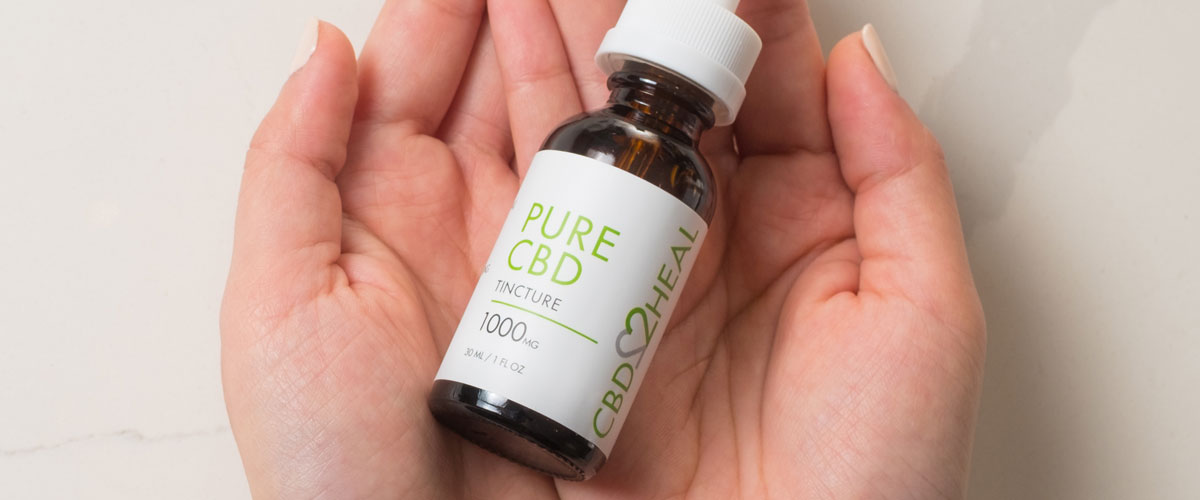- You have no items in your shopping cart
- Continue Shopping

Endometriosis affects millions of women worldwide, making it a painful and often frustrating condition to manage. While there are many treatments available, not all of them are effective for everyone, and some come with side effects that can make life just as challenging as the condition itself. In the search for better solutions, many women are turning to natural remedies—and one that’s gaining a lot of attention is CBD.
Could CBD be the relief you’ve been searching for? Let’s take a deeper dive into how this powerful plant compound might help alleviate the debilitating pain caused by endometriosis.
What is Endometriosis?
Before we dive into the specifics of how CBD can help, it’s important to understand what endometriosis is. Endometriosis
The main problem: with endometriosis is that this tissue behaves like it would inside the uterus—thickening, breaking down, and bleeding during each menstrual cycle. However, because the tissue is outside the uterus, there’s nowhere for it to go, leading to inflammation, scarring, and painful adhesions. For many women, the pain is excruciating, and it can also cause fertility issues, digestive problems, and fatigue.
Common symptoms:
- Intense pelvic pain, especially during menstruation
- Heavy periods or bleeding between cycles
- Painful intercourse
- Digestive problems like bloating, nausea, or constipation
- Chronic fatigue
The severity of symptoms: can vary, but for many women, endometriosis can significantly reduce their quality of life. And while there are treatments—such as hormonal therapies, surgery, and pain medications—these solutions often come with limitations. Enter CBD, a natural remedy that’s showing promise in managing chronic pain and inflammation.
How Does CBD Work in the Body?
CBD, short for cannabidiol, is a compound found in the cannabis plant. Unlike THC, another well-known compound from the same plant, CBD doesn’t have psychoactive effects, meaning it won’t make you feel “high.” Instead, CBD works by interacting with your body’s endocannabinoid system (ECS), which is a complex network of receptors involved in regulating a variety of functions such as pain, mood, inflammation, and even sleep.
The ECS plays a critical role: in maintaining balance within the body, and many researchers believe that CBD helps to enhance its functioning. When the ECS is out of balance, it can contribute to a host of problems, including chronic pain and inflammation—two key issues in endometriosis.
The Potential Benefits of CBD for Endometriosis Pain
CBD’s rising popularity for pain relief is well-deserved, especially for conditions that involve chronic pain like endometriosis. Here’s how CBD may provide relief for the key symptoms:
1. Pain Relief
Endometriosis pain can be unbearable, and traditional painkillers don’t always provide enough relief. Many women experience throbbing, stabbing pain in the pelvic area, particularly during their menstrual cycle. CBD is known for its analgesic (pain-relieving) properties, which could make it a valuable tool in managing this type of pain.
How does it work? By interacting with the ECS, CBD influences pain receptors in the nervous system, potentially reducing the intensity of pain signals being sent to the brain. The result? Less pain and more comfort during those difficult days.
2. Reducing Inflammation
Endometriosis triggers inflammation in the pelvic region, leading to painful swelling and discomfort. CBD is widely known for its anti-inflammatory effects. It reduces the production of inflammatory molecules called cytokines, which are largely responsible for the pain and swelling in conditions like endometriosis. By lowering inflammation, CBD may reduce both the pain and the damage caused by endometrial tissue.
3. Muscle Relaxation
Cramping is a common and painful aspect of endometriosis, and CBD may help with that too. Many women find that CBD’s muscle-relaxant properties ease the tension in the pelvic region, which can relieve the cramps and spasms caused by endometrial lesions. Whether used topically or ingested, CBD can help reduce muscle tension and promote relaxation.
4. Improving Sleep
It’s hard to get a good night’s sleep when you’re in constant pain. Endometriosis can disrupt sleep cycles, leaving you feeling exhausted and drained. The good news is that CBD has shown promise in improving sleep quality. Not only does it help with pain relief, but CBD also works on reducing anxiety, which can make it easier to fall and stay asleep.
5. Supporting Emotional Well-being
Chronic pain doesn’t just affect the body; it takes a toll on mental health as well. The emotional burden of living with endometriosis can lead to anxiety, depression, and even feelings of isolation. CBD has been studied for its anxiolytic (anti-anxiety) properties, and it may help manage the emotional ups and downs that come with chronic pain. By promoting relaxation and reducing stress, CBD can play a role in supporting mental and emotional well-being.
What Does the Research Say?
While research on CBD and endometriosis is still in its early stages, there are promising studies on CBD’s role in managing chronic pain and inflammation. A growing body of research suggests that CBD can help with a variety of pain conditions, including arthritis, migraines, and fibromyalgia—all of which share similarities with endometriosis pain.
For example, a 2020 study published in the Journal of Cannabis Research explored the potential of CBD for pelvic pain conditions and found that patients reported a significant decrease in pain symptoms. Although this research wasn’t specific to endometriosis, the findings suggest that CBD could offer similar benefits for women living with this condition.
There is still much to learn, but as more research emerges, the potential of CBD for endometriosis pain management becomes even more compelling.
How to Use CBD for Endometriosis Pain
CBD comes in many forms, allowing you to choose the best method for your needs. Each form has its pros and cons, and it’s important to find the one that works best for you.
- CBD Oils: CBD oil tinctures are taken sublingually (under the tongue) and are one of the fastest ways to feel the effects of CBD. They offer flexibility in dosing and can be a good option for those who need quick relief.
- CBD Capsules: For those who prefer a no-fuss option, CBD capsules are easy to take and provide consistent dosing. However, they take a little longer to kick in compared to oils.
- CBD Topicals: CBD Creams, balms, and lotions infused with CBD can be applied directly to the area of pain. Topicals are great for localized pain relief and muscle relaxation.
- CBD Edibles: CBD Gummies, chocolates, and other edible CBD products are fun and tasty, but like capsules, they take longer to kick in due to digestion.
When starting CBD, it’s essential to begin with a low dose and gradually increase until you find the right amount for your body. Everyone’s endocannabinoid system is different, so finding your ideal dose may take some time. Always consult with a healthcare provider before starting any new supplement, especially if you’re already taking other medications.
Final Thoughts
Living with endometriosis can be an overwhelming challenge, but CBD offers a natural, promising option for managing the pain and discomfort that come with it. From reducing inflammation to improving sleep and emotional well-being, CBD could provide a holistic approach to relief.
If you’re looking for a new way to manage your symptoms, CBD might be worth a try. Just remember, it’s important to choose high-quality products and consult with your healthcare provider to ensure CBD is the right choice for your individual needs.
With ongoing research and more women sharing their experiences, the potential of CBD as a natural option for endometriosis pain relief looks bright. Why not explore its benefits for yourself?
Shop online today for Canada’s best organic CBD oil!







